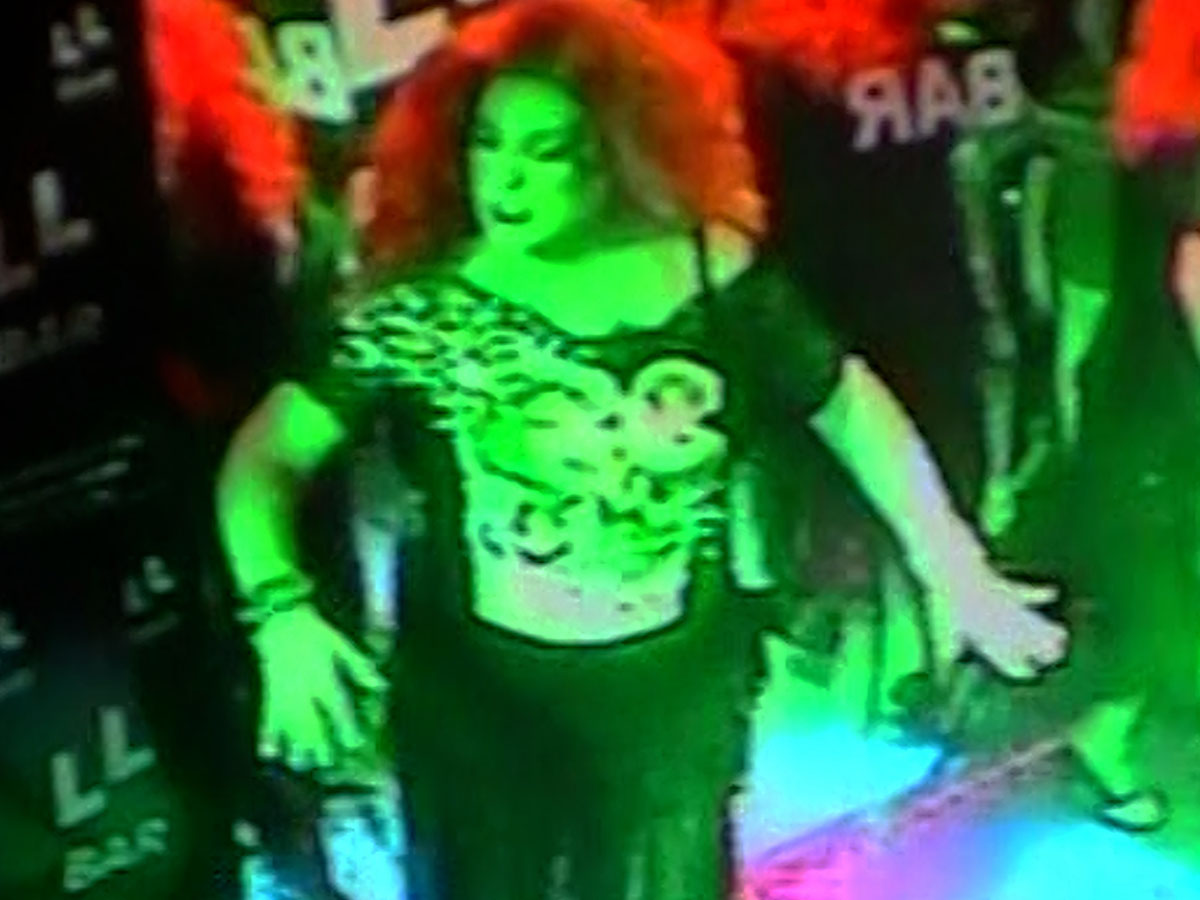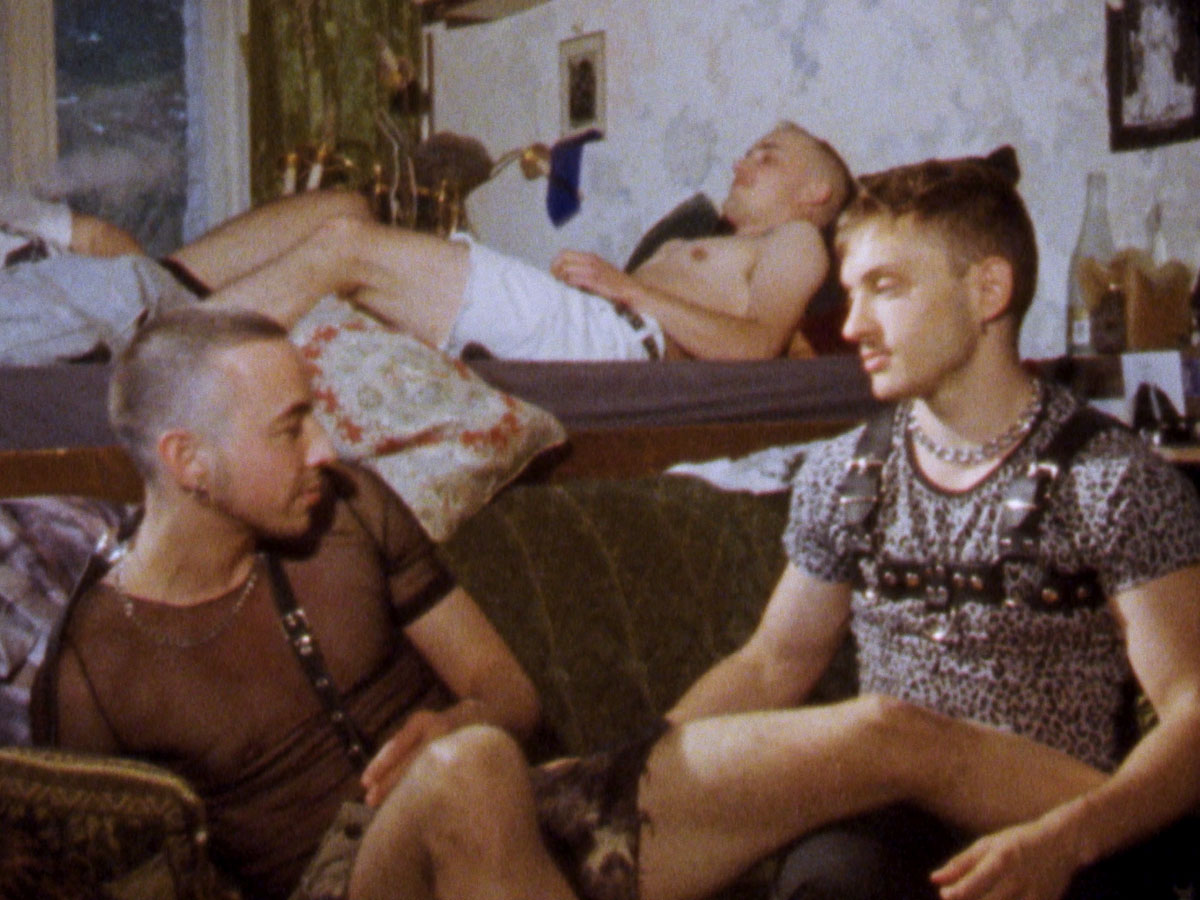
Atopia
An introspective essay about the search for a place between reality and imagination: a placeless place made up out of dreams and a longing for fluidity. Slowly, the grains of the compressed image become the sands of the atopic beach, revealing an imaginary place.
For gender non-conforming people, the rigid normative cage of gender binarism means a continuous fight against ever-tightening ropes, ever-crushing cogs, and ever-dimming hopes. Legal documents parade deadnames and assigned-at-birth genders, access to gender-affirming care is limited, and daily microaggressions spell out society’s necessity to uphold exclusionary standards. However, resilience is innate to queer individuals. To succumb would mean for cis-heteronormativity to win. To resist means to reappropriate our own narratives and, through it, to carve out pockets of reality for us to be free. Olivier De Vos’s meditative and reflexive video poem Atopia exemplifies this radical and affirmative posture.
Through a multilayered construction of archive materials, digitised as well as contemporary pictures, and original footage, De Vos charts their journey to the beaches of Atopia—a placeless place, brimming with both mesmerising potentiality and impossibility, a place you could be homesick for without being able to locate it exactly. As elusive as this promised land it invites viewers to, Atopia refuses easy classifications and finds a transitory place between fiction and documentary, between imagined ethnographic investigation and a research-led use of archival videos and photos to back up De Vos’s personal cognitive meanderings.
Interestingly, Atopia draws from the beach as a crucial locus for queer communities. Traditionally associated with spaces for gay men to meet and cruise, beaches have long been featured as queer places in art, film, and photography alike. In British painter Henry Scott Tuke’s work, for instance, the beach exists as a homo-utopian space where the bodies of young men are crystallised in a never-withering beauty that is at the same time immobile, vigorous, and disturbingly melancholic. In Atopia, however, the patch of sand and water allows for wider body representations and gender fluidity to seep through. During a magnetic, slightly blurred seaside sequence, the beach of Atopia manifests an alternative to the gender binary—a porous, in-between or all-encompassing understanding of liquid gender identity captured in a suggestive circular frame.
“Words do not look like the things they designate,” reads a quote from French philosopher Maurice Merleau-Ponty opening Atopia. Moving from here, De Vos’s astute use of archival materials—pictures and recorded interviews of unspecified sources—invites a onto-epistemological reading of the film. That is, De Vos’s film balances between polarised realms—in this case, the ontological, what a thing is, and the epistemological, what we understand a thing to be—alternatively seeking connections and disconnections. These reflections culminate in the film’s most achingly beautiful sequence featuring De Vos themself naked, their genitals tucked, wearing only some makeup and an azure wig while they confidently and sensually sit on the floor. Mere moments before, another person, naked and tucked, similarly sitting in their wig and makeup, accompanies De Vos’s commentary, “I’m making the man clear that the person on the screen is not a ‘dude’ but a woman, or not even that. Afraid of my cover being blown and revealing to him my longing for fluidity, I just sigh.”
The perceived incongruence between what society wants us to think our body signifies and our personal reading of our own gender as a superimposing marker disconnected from flesh and bones ultimately harbours Atopia’s meaning. Through archival manipulation and a visionary quest to find a place that is other, ineffable, and idealised, De Vos embarks on an experiment akin to myth-making. When language oppresses, resisting classification means ultimately resisting control.
Punk author Kathy Acker’s work is the starting point for a conversation about gender identity and body transformation and is linked to the punk movement of the 1970s and 1980s.



